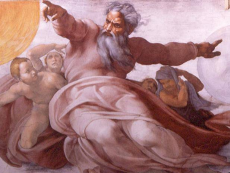
Email: reecejordan98@hotmail.co.uk
Total Article : 168
About Me:18-year-old sixth form student, studying English Literature, History and Government and Politics. My articles will broadly cover topics from the current affairs of politics to reviews of books and albums, as well as adding my own creative pieces, whether it be short fiction or general opinion.

In their introduction to Paradise Lost, Joanthan Goldberg and Stephen Orgel write that ‘God is the element in the poem that Milton has most trouble with.’ This is especially true of the time of Milton’s writing where to act as the ‘spokesman’ for God meant to tread a thin line of legality and authority. However, it is not so much Milton that ‘has trouble’ with the depiction of God, but the reader. The God in Paradise Lost can be read to be at turns authoritarian, cold, and petulant, and this is not assuaged by the seductive qualities of Milton’s Satan. But, this article asserts, this is not Milton siding with the devil, but instead illustrating the power of rhetoric, and in doing so forcing the reader to check their temptations away from God.
Perhaps one of the most pertinent problems in representing God is the underlying assertion that Milton knew God’s ways. Whilst it is true that Milton ‘had to exercise great care in choosing the words which he gives God to speak, making sure that God’s utterance remained in absolute accord with Scripture and mainstream scriptural exegesis’, he does nevertheless add to God’s words. After adhering to scripture with ‘Let there be light, said God’ (Book 7, l. 243), Milton then goes on to elaborate: ‘and forthwith light / Ethereal, first of things, quintessence pure / Sprung from the deep’ (Book 7, ll. 243-245).This addition, coupled with the line ‘half yet remains unsung’ (Book 7, l. 23), suggests that original scripture is somewhat lacking; that Milton’s words have greater depth and primacy. This would have allowed room for the charge of blasphemy had not Milton had these lines spoken vicariously. Not only is the reader aware that it is Raphael that is speaking of knowledge of God, but we are also told that Milton is told these supposed truths by an ethereal muse at the start of Book 7, Urania. Indeed, Milton frames this book as an answer to his own question: ‘Say goddess, what ensued’ (Book 7, l. 40). By doing this, Milton maintains a certain authorial distance from these lines that are charged with a superiority to original scripture. However, it can also be argued that by keeping certain parts of scripture within his work, Milton regards his own as secondary or complementary – God’s word within the Bible is a truth that cannot be changed, though additions may be made.
Image Credits: independent.co.uk

0 Comment:
Be the first one to comment on this article.